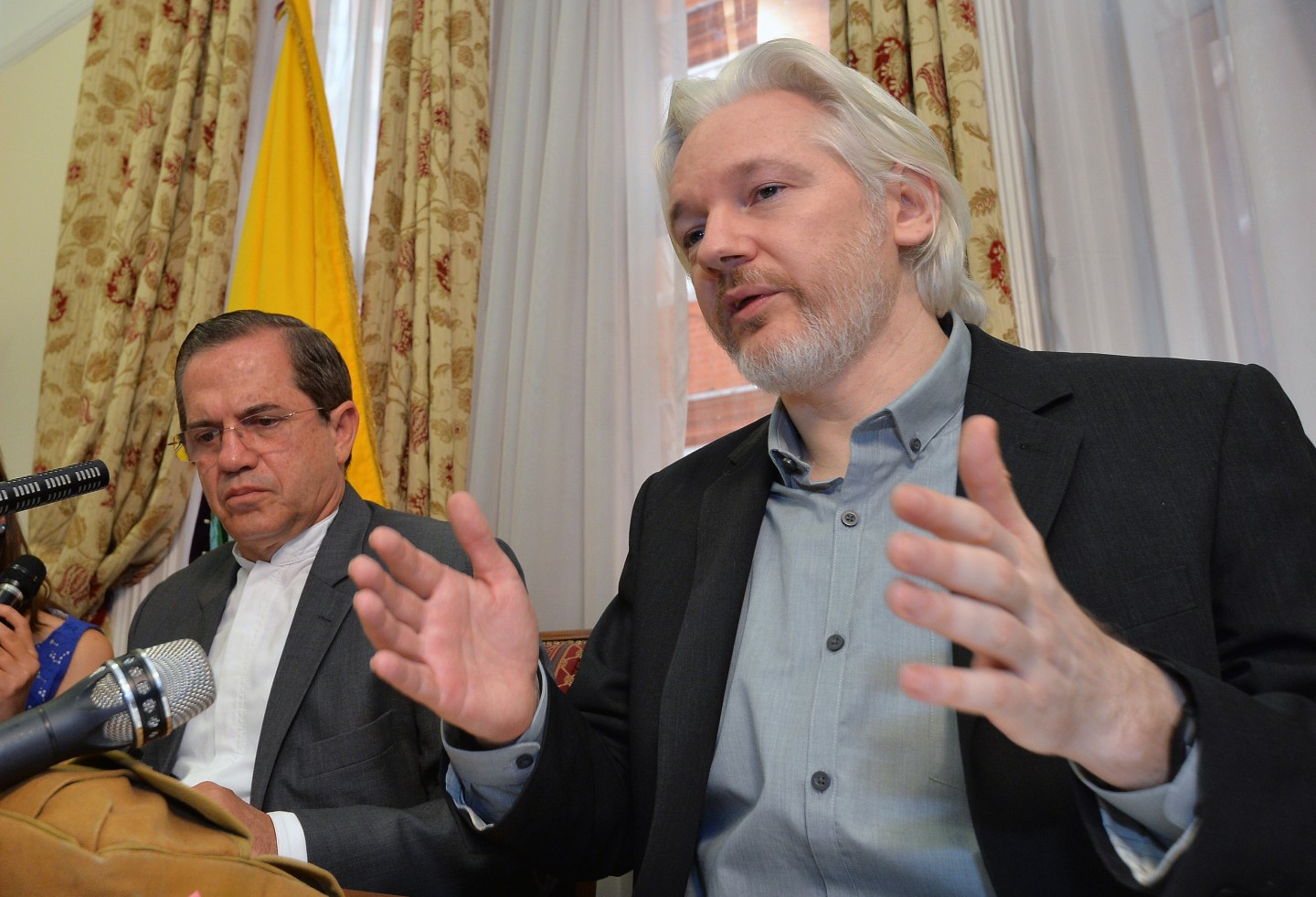Regular dumps of classified documents and other internal communications have become a fixture of modern life, thanks in part to stateless—and frequently lawless—entities like WikiLeaks. But is publishing those leaks always the right thing to do?
That’s one of the questions raised by the recent leak of private emails from John Podesta, the campaign chairman for Democratic presidential candidate Hillary Clinton.
The WikiLeaks dump consists of tens of thousands of emails, sent to a wide variety of people, about a range of topics that includes both the Clinton campaign and virtually every other aspect of Podesta’s personal life.
RELEASE: The Podesta Emails Part 4 (1193 new emails) #HillaryClinton #PodestaEmails #PodestaEmails4 https://t.co/rxnQMEuKmd pic.twitter.com/FCJ6qqYSyj
— WikiLeaks (@wikileaks) October 12, 2016
The most interesting thing about the leak is that it appears to have been carried out with the assistance of certain elements within the Russian government, according to a statement from the U.S. Intelligence department.
In that sense, it seems to be the fulfillment of a request from Republican candidate Donald Trump, who publicly asked for the Russian security apparatus to hack his opponent’s emails.
Get Data Sheet, Coins2Day’s technology newsletter.
When it comes to the actual content of the emails, however, there appears to be very little that is earth-shattering, or even news-worthy in any conventional sense. It certainly doesn’t come close to the same level as the Edward Snowden or Chelsea Manning leaks.
These @johnpodesta emails are all about typical campaign strategy, tactics. Not only no smoking gun– no gun at all! And nothing on Hillary https://t.co/vInhhiWlnA
— Norman Ornstein (@NormOrnstein) October 13, 2016
So should news outlets like the New York Times and Politico, both of which have reported extensively on the leaked emails, be publishing so many of them?
There are some emails that contribute to our understanding of the Clinton campaign’s relationship to the Democratic Party, and some that shed light on her ties to corporate America, including speeches to Wall Street banks and others that have raised controversy.
But much of what is contained in the leaks amounts to just gossip about relatively mundane events, such as what Clinton thinks of Democratic candidate Bernie Sanders.
WikiLeaks Founder Says He’ll Publish More Government Documents
Sociologist Zeynep Tufekci said on Twitter that she believes while media outlets seem incapable of resisting the lure of an email dump from a prominent figure, there are risks to publishing indiscriminately from such hacks that could have long-lasting impact.
One of the biggest risks, Tufekci says, is the destruction of personal privacy—for example, the Podesta dump included details of an ordinary staffer’s suicide attempt, which was subsequently tweeted out by Wikileaks and discussed on the air on CNN.
Theoretically, breaching someone’s privacy—even that of a quasi-government official—should be something that we do when there is a compelling argument for it, some broader social policy aspect, as there arguably is with the tape recordings of Donald Trump admitting to horrible behavior towards women.
Challenge of politics of dissent in the 21st century is the problem of attention & credibility. Mass leaks are now weaponized against both.
— zeynep tufekci (@zeynep) October 11, 2016
In a Twitter discussion with Intercept founder Glenn Greenwald, Tufekci argued that these mass leaks often contain internal machinations and gossip from within a campaign, which might be interesting from a historical context, but don’t really have any larger news or social value.
Greenwald said that the value of such leaks is that it shows us “what’s behind the curtain,” and how the powerful really talk and behave. But Tufekci said she believes the longer-term risk is that the “weaponization” of this destruction of privacy will tend to ensnare dissidents more than the powerful, who will adapt and find ways around it.
Sometimes, good journalism isn't about earth-shattering scandal. Sometimes its value is shining a light on what goes on behind the curtain. Https://t.co/4mbjtpwMNN
— Glenn Greenwald (@ggreenwald) October 12, 2016
People gossiping in internal conversation is not a scandal—but destroying public/private boundaries will paralyze dissent, not the powerful.
— zeynep tufekci (@zeynep) October 11, 2016
Obviously, publishing leaked emails—even if they are the product of an illegal act such as a hacking attempt—is often justified by media outlets when it either exposes some historic wrongdoing or contributes to our understanding of some crucial public policy issue. Watergate and the Pentagon Papers spring to mind.
But is it really that crucial for us to know the details of Hillary Clinton’s personal relationships with members of her extended family? Does that justify the hacking and leak of a person’s private email?
One of the complicating factors in this case is that there have been so many revelations about Donald Trump, including the tape of him saying he sexually assaulted women on a regular basis because he was famous, that quibbling over the publication of some Clinton-related material seems unreasonable—if not actually unfair.
But false equivalence is also a danger, and arguing that some private conversations that amount to virtually nothing but political scuttle-butt on a range of boring political issues is the same as what Trump has done is ridiculous.
Tufekci’s warning is one that the media should take to heart: Publishing leaked emails may be hard to resist, like candy is to a small child. But it is not healthy to indulge in to excess, and it could create an even worse environment for actual news-worthy disclosure in the future.












